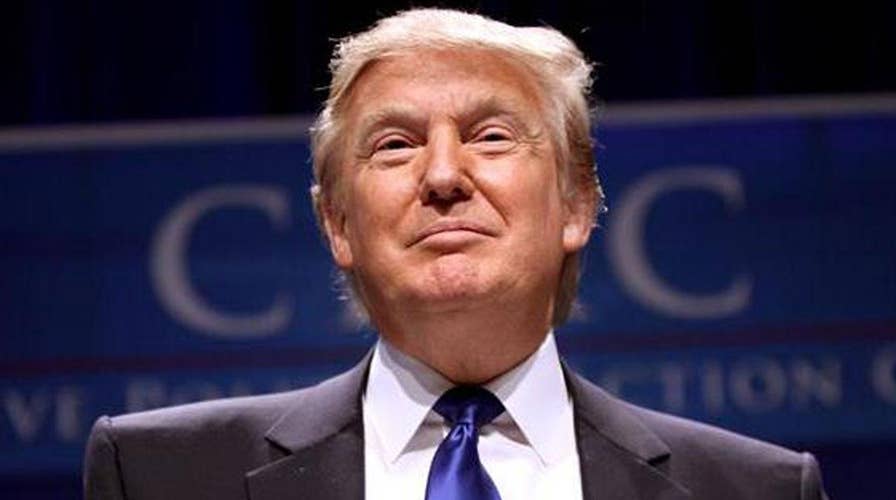Trump claims 'fake news' impacts his approval ratings
'MediaBuzz' host Howard Kurtz and Fox News contributors Mollie Hemingway and Richard Fowler react on 'The First 100 Days'
Since January 20th my White House colleagues and I have been given more than ample opportunity to answer questions on what the new Trump administration’s policies are on a slew of issues. In almost every case I start my response with the same caveat: Remember this is just week 13, or week 14 of the administration. Not month 13, or 14!
Nevertheless, the completely artificial marker of ‘Day 100’ looms large, so what do those inside the White House want our fellow Americans, our international friends -- and adversaries -- to understand about the our first “magical” 100 days and the president’s vision for the years ahead?
First things, first. The best way to understand anything is to start with primary sources. Unfortunately “Fake news” is a real phenomenon, one that is a significant problem on the left as much as on the right side of the media complex. As a result, I advise those who wish to really understand who President Donald J. Trump is, and what direction he intends to take his administration in, just to listen to the commander in chief’s own words.
In the crush of last year’s election campaign, the future president gave a speech on August 15th in Youngstown, Ohio. It was a speech that was almost completely missed in its significance by the commentariat and non-governmental national security “elite.” It was a powerful speech for what it accurately flagged as the future President’s vision and strategic intent in the national security domain.
The message was unequivocal and set the stage for a stance wholly unlike the previous 8 years.
Instead of positing poverty or other “local grievances” as the cause for the terrorist violence plaguing the world, the president diagnosed the threat as one rooted in “evil,” promising to take action and speak out against those who “oppress women, gays, and people of different faiths.” This evil, to which the president gave the specific name of “radical Islamic terrorism,” is to be “defeated,” and not “ameliorated” or “degraded,” as the Obama White House had promised.
But, the way to achieve this is not interventionism. The president explicitly rejected the strategy of nation-building, stating that the Bush/Obama proclivity for “regime change” be it in Iraq, Libya, or elsewhere, is over -- having been proven a strategic failure.
Since that speech was made, Donald J. Trump has been sworn in as commander in chief and subsequently demonstrated he is a man of his word over the last 100 days.
Not only has his administration taken decisive action domestically to limit the mobility of jihadist terrorists, with the president’s decision to strike appropriately against both ISIS in Afghanistan and the al-Assad regime in Syria, he has signaled that the age of “leading from behind,” and “strategic patience” is over.
In fact, Vice President Pence explicitly stated the latter, most recently from the deck of the American aircraft carrier, the USS Ronald Reagan. (For those who voted for the president and who may have seen these actions as creeping neoconservative interventionism, I have just this to say: one bomb -- albeit the biggest conventional one ever made -- or a cruise missile barrage, doth not an invasion or occupation make. This is not 1991, nor is it 2003).
The 100 day mark is really an irrelevancy. The far more important question is: does a leader keep his promises and what do his actions say about how he has managed the journey from candidate to commander?
Whether you voted for him or not, President Trump has answered both questions through his actions. He has made it clear that not only did the U.S. face down the totalitarians of the last century, the global threats of Nazism and Communism, but that we will now deal forthrightly with today’s totalitarians, with those who reject the norms and moral standards we deem universal, be it a terrorist group in South Asia that believes in vicious theocracy, or a secular regime in the Middle East that uses chemical weapons against the innocent.
As of January 20, 2017, the phrase “red line” once again has meaning. And with a team made up of strategic professionals such as General McMaster, Secretaries Mattis,Tillerson, and others, the president has made it abundantly clear: we will deal with the world as it is not as we would wish it to be, and that America will lead from the front once more.

